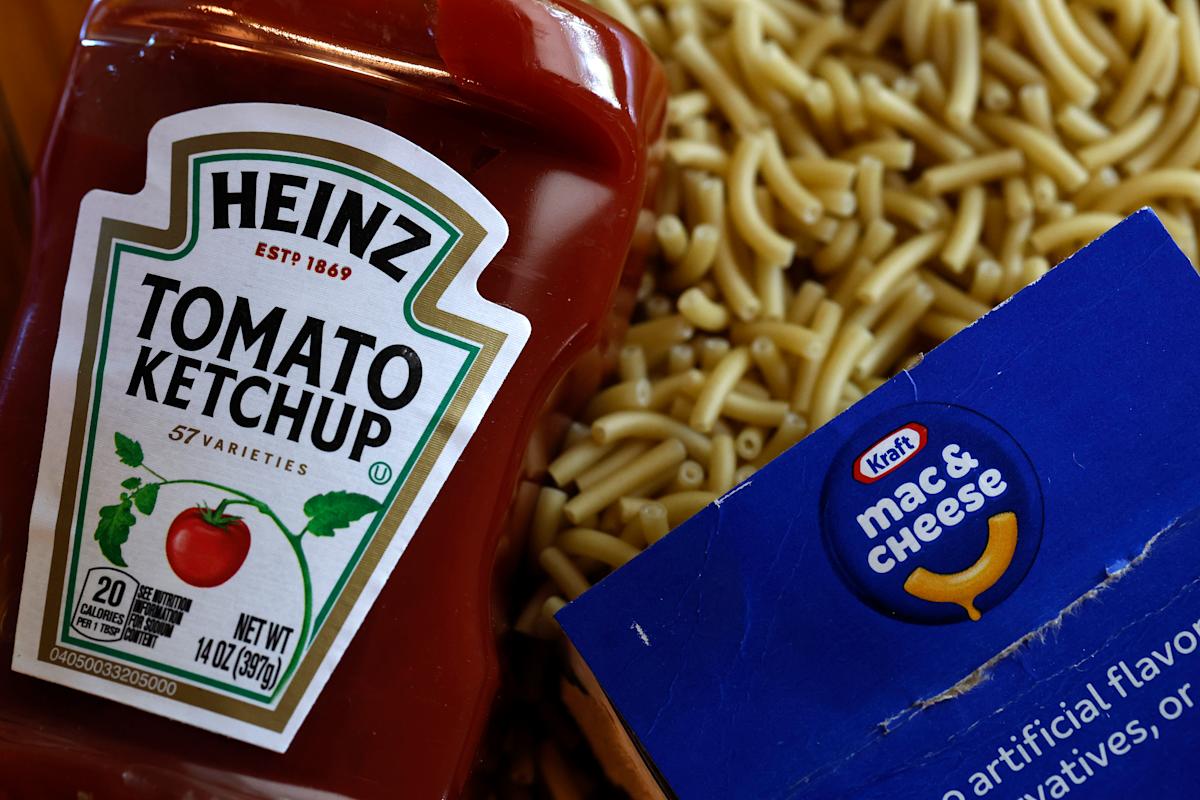Why breakups are in vogue for restaurant chains and Big Food
Economic uncertainty and evolving consumer preferences are leading to major shakeups in Big Food — from the likes of restaurant chain Denny’s (DENN) and mac-and-cheese maker Kraft (KHC).
Companies like these face a “combination” of economic factors. Those range from the low-income consumer under pressure to movements like Make America Healthy Again. Also, about 75% of the US adult population is expected to be on a GLP-1 drug in the next 10 years, PwC Consumer Markets Industry Leader Ali Furman told Yahoo Finance, which doesn’t help. That has caused a pileup of M&A action.
This week, Denny’s announced a $620 million deal to go private with the private equity firm TriArtisan Capital Partners, Treville Capital, and one of its largest franchise operators, Yadav Enterprises. The brand saw same-store sales fall for the third consecutive time in the latest quarter, down 2.9%.
“PE [private equity] see opportunities there to seize … potentially undervalued companies that they can … turn around and then make a big amount of money on top of that,” Ye Cai, a professor at Santa Clara University, told Yahoo Finance.
Consistent cash flow is another reason PE has always had interest in the restaurant space, Furman said. Yum! Brands (YUM) is now exploring a similar option, among others, for its Pizza Hut brand.
“We’ve made the decision to initiate a thorough review of strategic options,” CEO Chris Turner, who officially joined the helm on Oct. 1, said in the release. Pizza Hut posted its eighth straight quarter of sales declines, down 1%. That’s compared to Taco Bell, which saw 7% growth in the latest quarter, and KFC, up 3%, rebounding from declining sales a year ago.
Papa John’s (PZZA) investors got their hopes up that Apollo Global Management would buy the chain at a premium for $64 per share, but the private equity firm, which owns Yahoo Finance, withdrew its offer earlier this week, just ahead of its bleak third quarter results.
On Thursday, the quick-service pizza restaurant chain posted a sales decline of 2.7% in North America, well below the 1.7% growth the Street expected, per Bloomberg data.
Meanwhile, Starbucks (SBUX), which is struggling in the US, said Monday that it sold a majority stake in its China business to Boyu Capital in a deal that values the segment at $4 billion. “We hope this is the beginning of re-franchising other international markets, such as U.K. & Canada, to help management streamline focus on the key priority of turning around the US,” TD Cowen analyst Andrew Charles wrote in a note to clients.



Leave a Comment
Your email address will not be published. Required fields are marked *